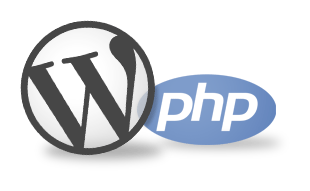PHP Support and WordPress Version
PHP EOL?

PHP is a script language and interpreter that is freely available and used primarily on websites. According to PHP and WordPress.org, 60% of websites are using end of life (EOL) or otherwise non-supported PHP versions. Using non-supported PHP versions creates major security risks not only to your website but also XMission’s Shared Hosting Servers.
As of January 1, 2020, PHP 7.1 was marked end of life, PHP 7.2 has security fixes only, and PHP versions 7.0 and older are no longer supported. This information is important because eight out of every ten websites will soon be running on a version of PHP that is no longer supported.
According to WordPress.org 36.4% of websites use PHP. Out of those websites, 61.6% are currently using PHP 5.6 and older. Another 20% of websites are using PHP 7.0. This means 80% of WordPress websites are vulnerable and are not getting the correct bug patches and security fixes.
To ensure XMission’s servers, your websites, and the customers that visit them are secure, we will be upgrading our Shared Hosting platform to Ubuntu Linux 18.04 this year. This also includes the removal of non-supported PHP versions. If your website is not ready for this it may stop working properly.
What does this all mean to you?
Unfortunately, we can’t just change your PHP version and expect everything to continue working. Please be aware that simply changing the PHP version your website runs on has the potential of breaking your website. You will need to review your development and see what is needed to make it compatible with the new version. As PHP versions reach end of life, or are no longer supported, XMission will need to decommission older versions of PHP from our servers. If your development is not ready for this upgrade, you could no longer have a working digital footprint.
If you have a WordPress website you might notice some major changes already happening. In December of 2019 WordPress started to require every PHP version be a minimum of 5.6. This means if your PHP settings are less than 5.6 you will not be able to update your core, theme or plugins. As early as April 2020, WordPress will start to require your PHP version be set to at least 7.1.
The benefits of keeping updated PHP Version.
There are some key reasons to keep your website on the most recent version of PHP.
Speed and Performance
Running a website with older versions of PHP will cause slower loading times and cause poor performance for your customers. The developers of PHP have been increasingly adding performance gains to newer versions making your requests to process faster and with less latency.
Support and Compatibility
Compatibility is another big reason why you will want to be on the latest version of PHP. Like any piece of software, developers will only support older versions for a certain amount of time. This is like your operating system on smart phones. The older cellphones can’t accept the newest version of operating system (e.g., an iPhone 5 can’t run iOS 13).
Security
Another reason you should upgrade your PHP is for the security of your website. Running the latest version of PHP ensures that your site is protected against vulnerabilities identified in older versions of PHP. For example, in 2016 there were 43 security exploits and in 2017 there were an additional 18 major vulnerabilities.
Using PHP versions released during these times (PHP 5.6 and 7.0) won’t have the patches released to protect your website and its contents. This means your website is made vulnerable to DoS attacks, code execution, SQL injections, and many other types of exploits. XMission does our best to protect against these types of attacks, however it is your responsibility to ensure the security of your own website.
What version of PHP am I currently running?
There are a couple of ways to find out what version of PHP you are using on XMission’s servers:
- The easiest is to log in to your shared hosting platform. Once you’re logged in, you can view your PHP Settings
- Install the free Display PHP Version plugin. Once this has been downloaded and activated, the “At a Glance” widget in the dashboard will show you the “Running PHP Version.”
Before you Upgrade
Before you upgrade your PHP settings you should take some time to review what it takes to upgrade in PHP support:
- Migrating from PHP 5.6 to PHP 7.0
- Migrating from PHP 7.0 to PHP 7.1
- Migrating from PHP 7.1 to PHP 7.2
Are you using WordPress?
WordPress Engine developers have created a PHP Compatibility Checker plugin. This plugin lets you scan your site and check which plugins are compatible with the three latest versions of PHP. We recommend reviewing our online help pages on how to get this plugin and run the scan against your site.
We also recommend reviewing WordPress’s requirements to ensure that your development continues to survive. We hope this information helps you to understand why up-to-date PHP versions and current development ensure your website stays secure, running, and operational.
If you have any questions please contact our support department 24/7 at 877-964-7746/801-539-0852, extension 4.
Imunify360: XMission’s Exciting Shared Hosting Security Enhancement Let’s Talk Phishing—Part 1
Comments are currently closed.
Sadly, I must confess that I haven’t a clue what any of this means to me. I have been an Xmission client for decades. My several business/personal computers still run on old Windows programs (7 and XP). They serve my purposes well and provide easy access to literally thousands of documents (mostly WordPerfect and Photoshop). What do you suggest (other than replace all five or six of my computers)?
Hi Don,
Unless you have a WordPress website running on XMission servers, you don’t need to do a thing! Keep running whichever operating system(s) you prefer on your personal computers — it doesn’t affect the software performance on remote webservers.